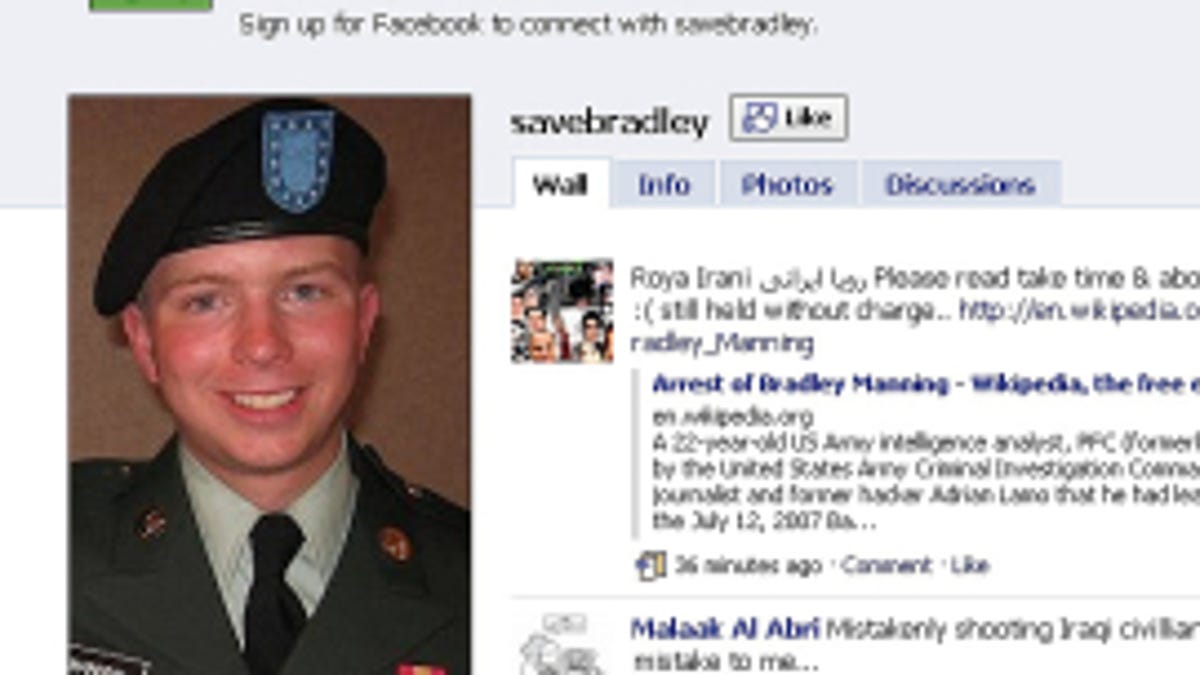Bradley Manning offers partial guilty plea to military court
Alleged Wiki-leaker's attorney says, however, that the offer applies to only "a subset of" the offenses. That means the February 2013 court-martial will proceed.

Bradley Manning, the U.S. Army soldier accused of providing WikiLeaks with hundreds of thousands of classified documents, has offered to plead guilty. Sort of.
During a pre-trial hearing in military court today, Manning's attorney, David Coombs, proposed a partial guilty plea covering a subset of the slew of criminal charges that the U.S. Army has lodged against him.
"Manning is attempting to accept responsibility for offenses that are encapsulated within, or are a subset of, the charged offenses," Coombs wrote on his blog this evening. "The court will consider whether this is a permissible plea."
Coombs stressed that Manning's offer has to be accepted by the court -- it's not final until it is -- and is not part of any "an agreement or deal" with prosecutors.
Manning's court-martial is set to begin in February 2013. Last year, the military slapped him with 22 charges, including alleging that Manning caused "to be published on the Internet intelligence belonging to the United States government."
WikiLeaks editor Julian Assange said last month in an appearance from Ecuador's London embassy that prosecutors want Manning to identify him as another guilty party.
The Army wants, Assange said from his embassy room where he sought refuge to avoid an extradition attempt, "to break him, to force him to testify against WikiLeaks and me" -- an apparent reference to the Justice Department's investigation taking place in conjunction with a federal grand jury in Alexandria, Va. If prosecutors can allege conspiracy to commit computer crimes, they would avoid some of the free speech problems they'd face in an Espionage Act prosecution.
Blogger Kevin Gosztola, who attended the Fort Meade, Md. hearing today, wrote that Manning would admit he provided the data to WikiLeaks. In other words, Gosztola wrote, "he can plead guilty without accepting the government's charge that he aided the enemy' or 'exceeded authorized access' on his computer."
The military's 2012 Manual for Courts-Martial (PDF) allows defendants to offer hybrid pleas to judges, including "not guilty to an offense as charged, but guilty of a named lesser included offense" and "not guilty of the exceptions, but guilty of the substitutions."
Exceptions-and-substitutions aren't unusual in military court. The U.S. Air Force Court of Criminal Appeals decided a case in June in which an airman first class was convicted of using of cocaine and other drugs, jailed, and then dishonorably discharged. In that case, the defendant pleaded guilty by "exceptions and substitutions" by excepting the drug Percocet and substituting the drug Vicodin.

